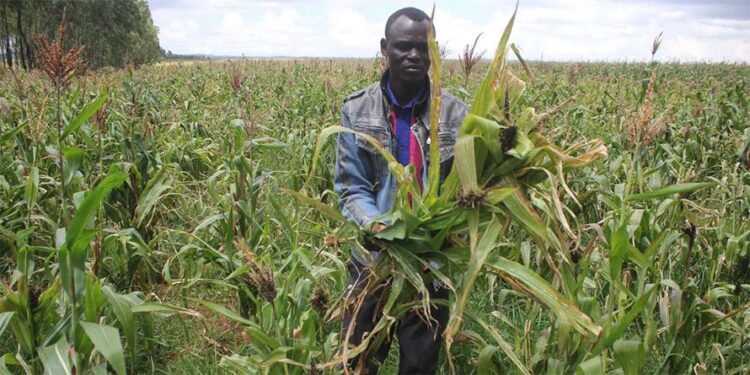Letters
LETTERS: More investments in food security needed
Wednesday, June 5, 2019 20:32
By JEMIMAH NJUKI |

There is plenty of science to guide us on what we need to do to achieve greater food security, provide better nutrition, and prevent food shortages and hunger in Africa even in the face of a changing climate.
What has been lacking, however, is consistent and broad-based investment to support smallholder farmers so that they can be resilient and productive.
In the last few months, heavy rains have pounded some eastern and southern African countries. In Malawi, Mozambique, Zimbabwe and Tanzania, lives have been lost and people displaced after their homes were washed away.
The greatest contradiction though is that just a few months prior to this, the region was hit by a drought leading to hundreds of thousands of people going without adequate food. By March 2019, the UN had declared that 13 million people were food insecure and in need of assistance in southern Africa.
Global data also suggests hard times ahead for smallholders. The Intergovernmental Panel on Climate Change (IPCC) notes a global trend toward increasing worldwide dryness or drought in their 2018 noting that global temperatures have become higher, leading to extreme weather—including severe drought—and that some regions are experiencing longer and more intense periods of drought.
The global community and national governments have the means to support smallholder farmers to thrive despite this grim climate outlook.
First, we need to ensure farmers have access to crops capable of withstanding extreme weather changes. The use of drought-tolerant crops can increase output for crops in marginal and dry areas.
For example, a study in Zimbabwe showed that households that grew drought-tolerant maize varieties had 617 kg/ha more maize than households that did not grow these varieties. Other crops, such as sorghum and millet, have been shown to withstand drought, yet they remain unavailable to farmers due to weak seed systems and defunct extension services.
In Ethiopia, the Ethiopian Institute for Agriculture Research is working to ensure that new drought-resistant sorghum varieties are delivered to hundreds of thousands of smallholders across the country.
Second, expanding irrigation systems can allow farmers to grow more than one crop a year, freeing them from an overreliance on rainfall and helping them grow more than one crop per year. And as the saying goes, crops need water not rain.
In Africa though, only six percent of arable land is irrigated. And even in those countries with large areas of irrigated land, irrigation schemes remain poorly managed and underutilised. In Mozambique, only half of the 181,000 hectares of land equipped with irrigation schemes are being used for agricultural production.
The main reasons are poor management and lack of adequate knowledge and maintenance skills. A new project is building the skills of smallholders to manage both the farmer- and government-led irrigation schemes, providing incentive for farmers to manage them through links them to markets and extension services.
Drought is not the only risk for farmers. Pests and disease remain major threats to crop production. So, third, we need to invest in pest management technologies to protect crops.
While global crop loss attributable to insect pests has declined over the years (for example there has been a decline in pest-driven losses from 13.6 percent during the pre-green revolution to 10.8 percent at the turn of the 21st century), losses are expected to rise again in light of a warming climate.
Across Africa, for example, fruit flies cause farmer-reported losses of up to 80 percent and economic losses of $2 billion. Finding safe, sustainable, environmentally-sound ways of managing pests is key to reducing crop losses from insect damage.
In Kenya, Zimbabwe and Zambia, the International Centre for Insect Physiology and Ecology will be developing and testing integrated pest and disease management practices aimed at eradicating the fruit fly.
Lastly, even with all these interventions, we need to ensure that smallholder farmers are protected from risk through effective, appropriate climate insurance products.
New innovations in mobile technology and satellite imagery are paving new ways for developing index-based livestock insurance products that are suitable for farmers.
Jemimah Njuki, senior programme specialist at Canada’s International Development Research.
Kenyan Business Feed is the top Kenyan Business Blog. We share news from Kenya and across the region. To contact us with any alert, please email us to [email protected]











